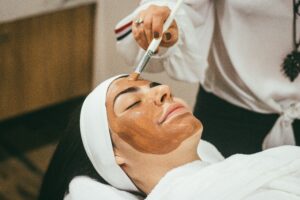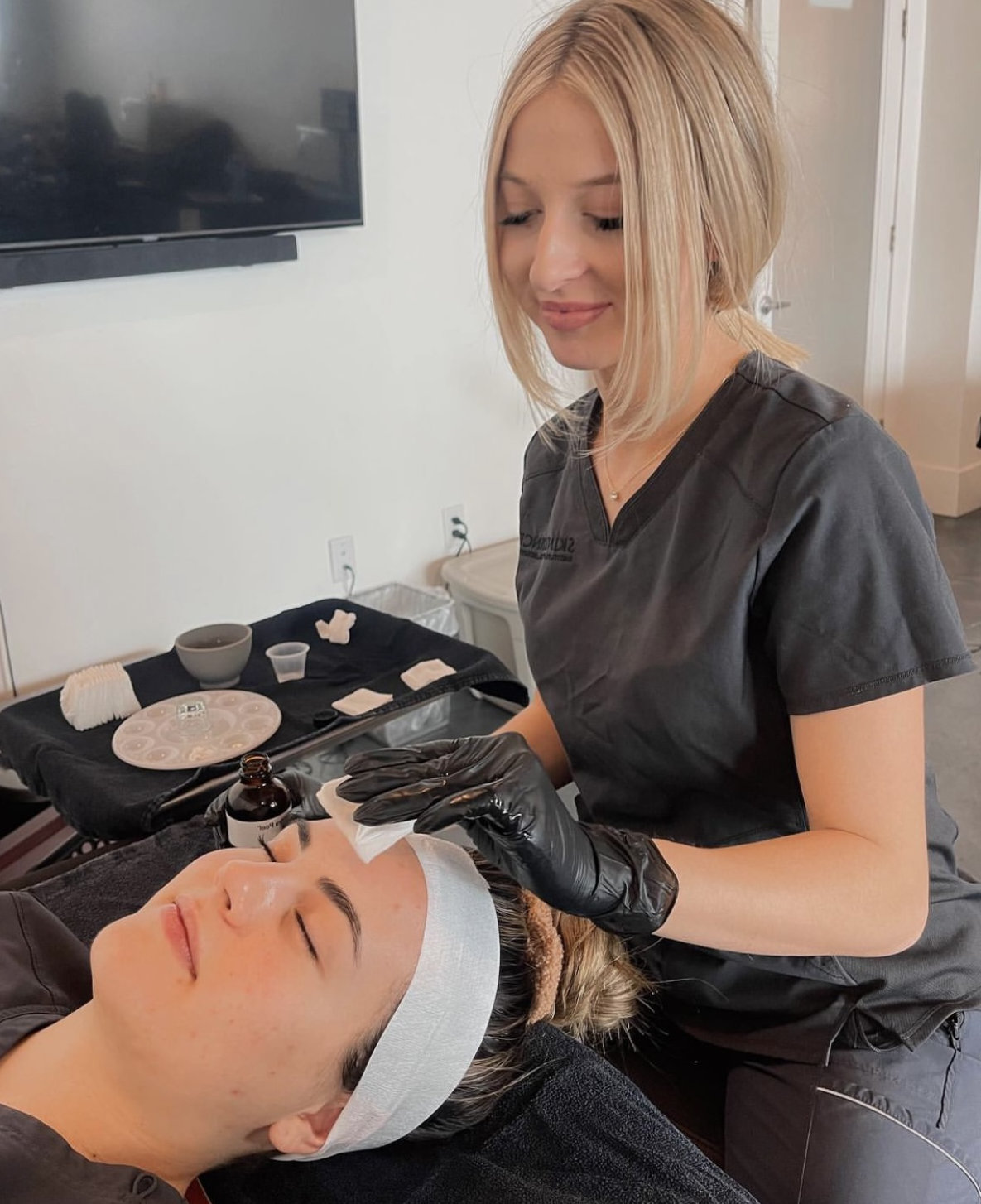Whether you’re a current student studying to become an esthetician or just graduated from beauty school, understanding what your future clients want when it comes to skincare can determine the success of your business.
As more people focus on a natural lifestyle, the demand for naturally derived skin care ingredients continues to grow. Esthetician students should stay current with skincare trends so you can create customized treatments to meet client demand.
Read on as Skin Science Institute in Orem, Utah, shares eight natural skincare ingredients clients crave and their benefits so that you can incorporate them into your esthetician services.
1. Argan Oil
Argan oil, known as “liquid gold,” is a popular natural beauty ingredient due to its high vitamin E and fatty acid content. It’s a versatile oil that deeply nourishes and hydrates the skin, making it suitable for all skin types.
The antioxidants in argan oil help protect the skin from free radicals and promote a youthful appearance. Incorporating argan oil into your skincare services can help clients improve skin elasticity, reduce the appearance of fine lines and wrinkles, and restore a healthy glow.
2. Vitamin C
Vitamin C is a powerhouse ingredient renowned for its brightening and anti-aging properties. It stimulates collagen production, fades dark spots, and protects the skin against environmental damage. Clients with hyperpigmentation or dull skin may benefit from incorporating vitamin C into their routine. You can recommend serums or moisturizers infused with vitamin C to enhance their skin’s radiance and overall health.
3. Vitamin E
Vitamin E is a potent antioxidant that helps protect the skin from free radicals and UV damage. It nourishes and moisturizes the skin, promoting a soft and supple complexion. Estheticians can incorporate vitamin E-rich oils or creams into their spa treatments to soothe dry or irritated skin.
Clients with scars or stretch marks may also find vitamin E beneficial in reducing their appearance.
It’s important to note that combining vitamins E and C yields better results when used together. In fact, according to Healthline.com, “By adding vitamin C and E serums into your routine, or using products that contain both, you’re giving your skin double the antioxidant ammunition to fight damage from free radicals and more UV damage than vitamin C by itself.”
4. Topical Vitamin B3 (Niacinamide)
Niacinamide, a form of vitamin B3, has gained popularity in the skincare world for its multifaceted benefits. It regulates sebum production, improves skin texture, and minimizes the appearance of pores. Niacinamide also helps reduce redness and inflammation, making it suitable for acne-prone or sensitive skin clients. Niacinamide-infused products and serums can improve overall skin health.
5. Algae Extracts
Algae extract is a hidden gem in the skincare world. Rich in vitamins, minerals, and antioxidants, it helps nourish and revitalize the skin. Algae extract has moisturizing properties that help improve skin elasticity and promote a youthful appearance. Its ability to detoxify the skin and protect against environmental damage makes it a valuable ingredient in anti-aging treatments.
Some of the most effective algae extracts are:
- Spirulina – This remarkable ingredient is rich in chlorophyll, known for its cleansing properties, and helps maintain skin hydration, promoting smooth and supple skin.
- Chlorella – The presence of essential minerals such as B vitamins, magnesium, and zinc in this ingredient can aid in skin detoxification.
- Red, Green, Brown, and Blue Algae – Green and brown algae are notably high in vitamin C and renowned for their potent skin-brightening properties. And red marine algae contain beta carotene that can effectively treat blemishes such as cysts, whiteheads, and blackheads.
6. Licorice Root Extract
Licorice root extract is known for its brightening and soothing properties. It helps fade hyperpigmentation, even out skin tone, and reduce the appearance of dark spots. Licorice root extract also contains antioxidants that protect the skin from free radicals. Incorporating this ingredient into your spa treatments can help clients achieve a more radiant and even complexion.
7. Jojoba Oil
Jojoba oil, derived from the seeds of the jojoba plant, is a versatile ingredient that offers remarkable benefits for the skin. Its chemical composition closely resembles the natural oils produced by our skin, making it an excellent moisturizer.
Jojoba oil helps balance oil production, making it suitable for dry and oily skin types. Additionally, jojoba oil acts as a protective barrier, shielding the skin from environmental stressors while promoting a youthful complexion.
8. Willow Bark Extract
Derived from the bark of the willow tree, willow bark extract is a natural source of salicylic acid, a well-known ingredient in the skincare industry. Salicylic acid exfoliates the skin by dissolving dead skin cells and unclogging pores, making it an effective solution for acne-prone and congested skin.
Willow bark extract also possesses anti-inflammatory and antimicrobial properties, reducing inflammation and preventing bacterial growth. Incorporating this ingredient into your skincare routine can help promote clearer, smoother, and more balanced skin.
The growing demand for natural skin care products shows clients prefer high-quality, natural ingredients. As an esthetician, it’s essential to be knowledgeable about various forms of skin care. By incorporating these eight naturally-derived ingredients – argan oil, Vitamin C, Vitamin E, Vitamin B3, algae, licorice root, willow bark extract, as well as jojoba oil, you can meet your client’s needs and keep up with the latest skincare trend.
If you want to pursue a skincare career or expand your knowledge, Skin Science Institute in Orem, UT, offers a comprehensive esthetician program to help you achieve your goals. Contact us today to learn more about becoming a licensed esthetician in Utah!




